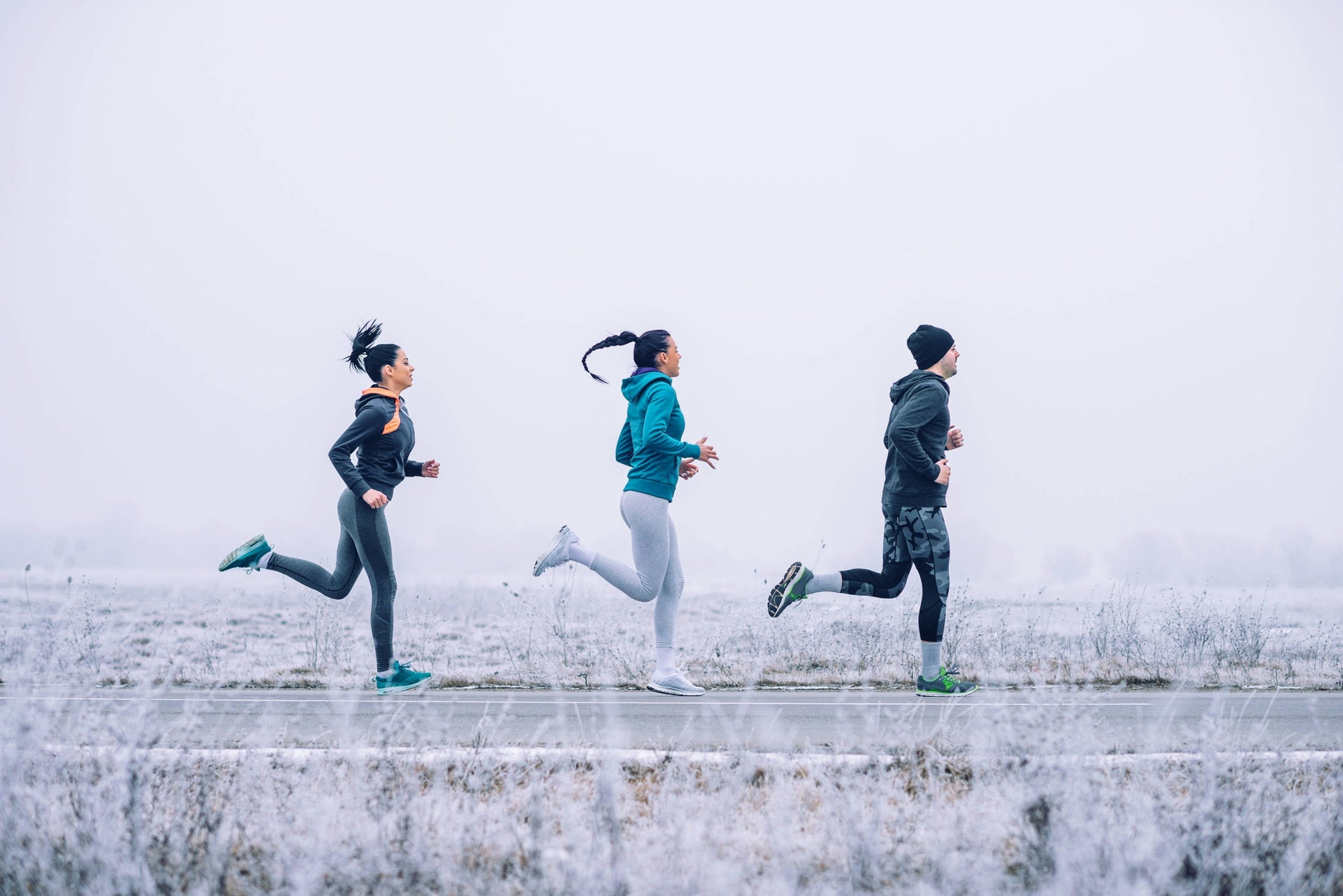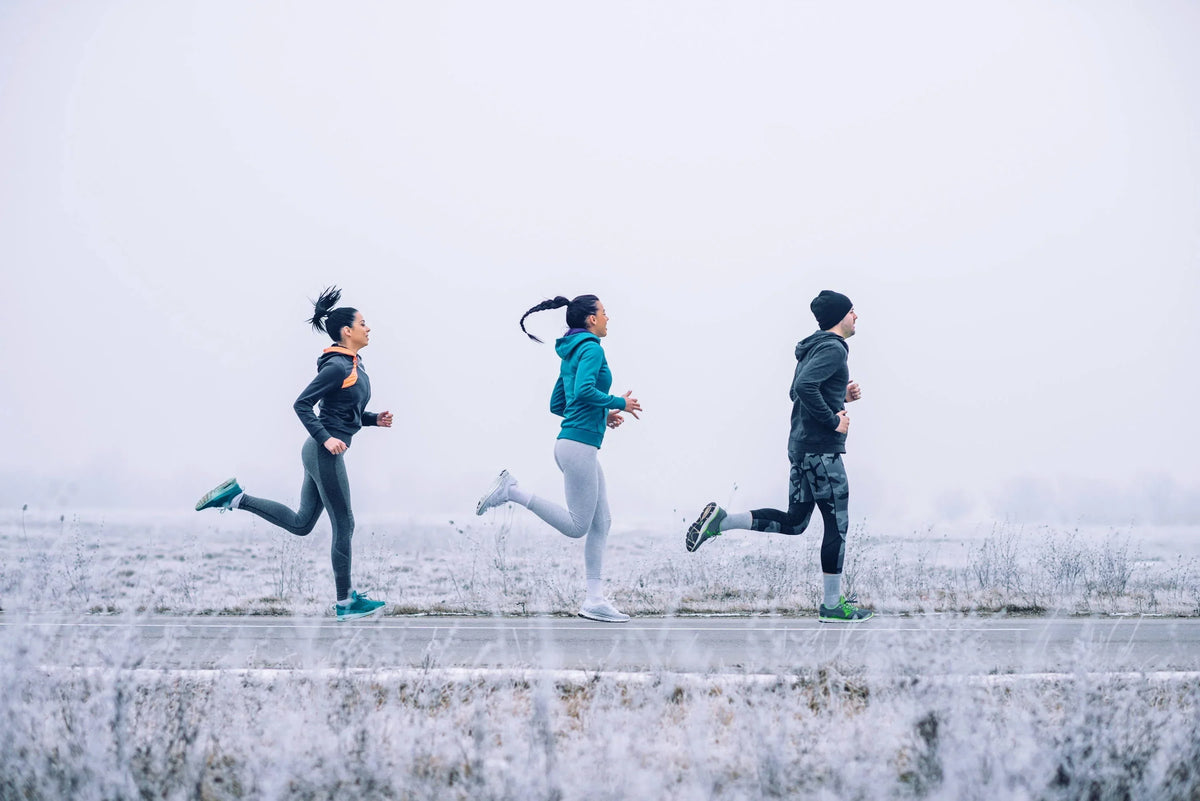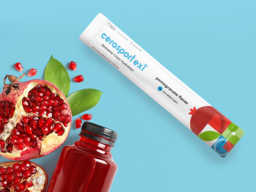Depending on the duration of activity in the cold, energy needs can increase by 25-50% in the cold and at altitude. Shivering is an involuntary physiological response to a drop in body temperature to stay warm.
Shivering stops at 92F. That is really bad. Shivering also stops when the skin is warmed even though core temperature is still dropping. Also really bad. The best way to warm up cold muscles is with exercise, which requires more calories. A high carbohydrate diet is preferred in the cold. It is your glycogen stores (carbohydrate) that are depleted to maintain core temperature.
When you are doing a long run or ride in colder temperatures you need an extra carbohydrate source, ideally from a higher carbohydrate beverage, to maintain blood sugar levels and prevent performance from dropping. Athletes training to do a race at altitude or if you are training at altitude you should plan to consume more carbohydrates than at sea level. You are also more susceptible to acute mountain sickness when dehydrated or if you have a drop in blood sugar.
In the cold and at altitude, you have increased fluid and carbohydrate requirements to maintain body functions that preserve heat and acclimate to the elevation changes. When training or racing in the cold or altitude, follow a similar hydration plan to when training and racing in the heat. You may not feel like you need as much. Yet your sweat losses will decrease but your urine and respiratory losses will increase.
Water is not enough. When we just drink water, we only replace about 50% of our fluid needs. The sodium and carbohydrate in a sports drink increases voluntary fluid intake and the extra carbohydrate will support your additional needs from cold and altitude. Salt needs may not be as high as during the summer but you will still lose some sodium in your urine and sweat. Use a sports drink with 460-800 mg sodium per liter.
References:
Baker LB, Jeukendrup AE. Optimal composition of fluid-replacement beverages. Comprehensive Physiology. 2014, 4.
Marriott BM, Carlson SJ. Nutritional Needs in Cold and in High-Altitude Environments. Applications for Military Personnel in Field Operations. Committee on Military Nutrition Research. Food and Nutrition Board. Institute of Medicine. National Academy Press. Washington DC. 1996.




